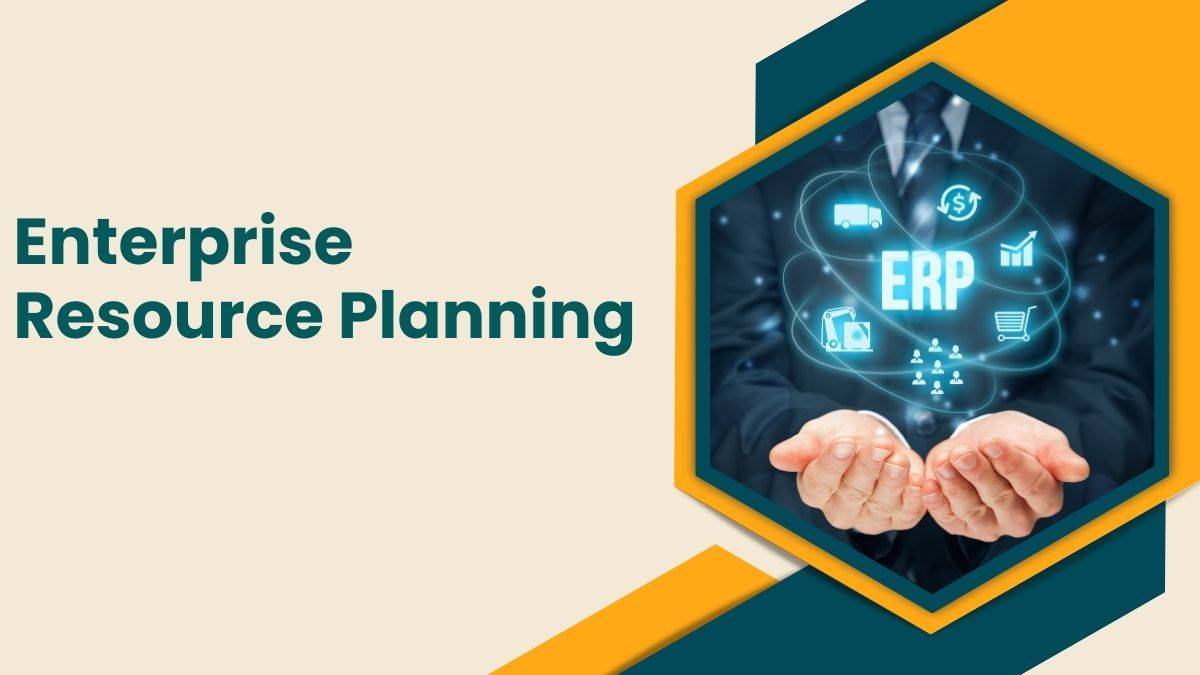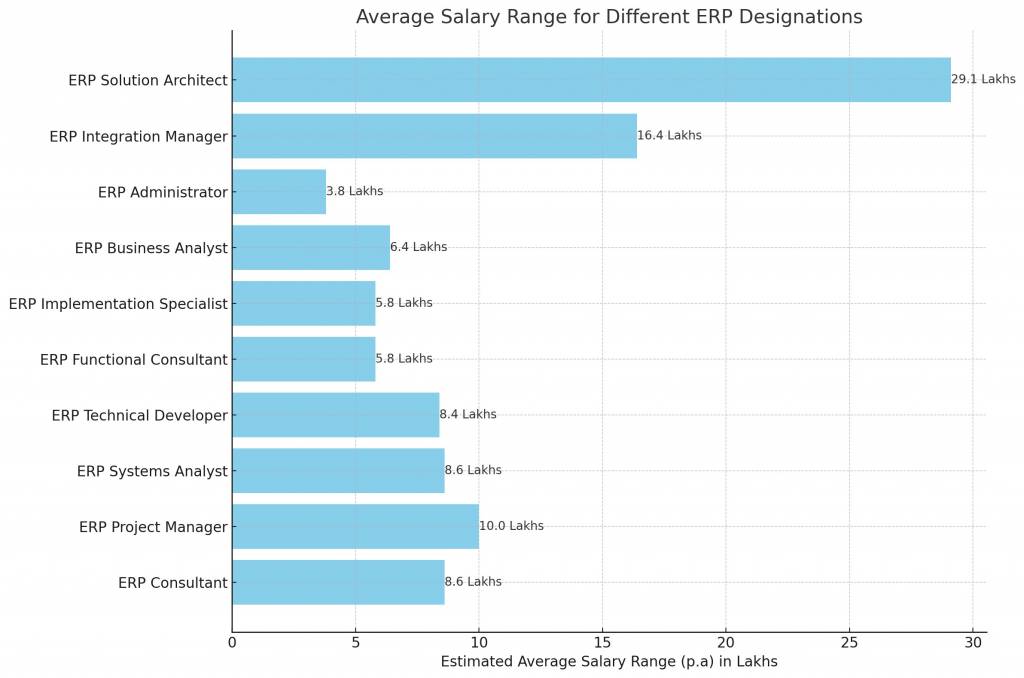Free ERP Courses & Certifications Online
Online ERP (Enterprise Resource Planning) courses offer a comprehensive understanding of integrated business processes, essential for managing operations across various industries. These courses provide significant career opportunities with the growing demand for ERP skills. Graduates can pursue roles such as ERP consultants, system analysts, and project managers. The knowledge gained from these courses enhances job prospects and potential for career advancement in a competitive job market.
Why Learn ERP (Enterprise Resource Planning) Online?
Access to ERP-Specific Courses:
Online programs offer various ERP-specific courses, including finance, supply chain management, human resources, and customer relationship management modules. These tailored courses provide comprehensive knowledge not always available in traditional on-campus programs.
Flexibility for Professionals:
Online l
Online ERP (Enterprise Resource Planning) courses offer a comprehensive understanding of integrated business processes, essential for managing operations across various industries. These courses provide significant career opportunities with the growing demand for ERP skills. Graduates can pursue roles such as ERP consultants, system analysts, and project managers. The knowledge gained from these courses enhances job prospects and potential for career advancement in a competitive job market.
Why Learn ERP (Enterprise Resource Planning) Online?
Access to ERP-Specific Courses:
Online programs offer various ERP-specific courses, including finance, supply chain management, human resources, and customer relationship management modules. These tailored courses provide comprehensive knowledge not always available in traditional on-campus programs.
Flexibility for Professionals:
Online learning allows current professionals to continue their education and upskill without disrupting their careers. It enables them to balance work, studies, and personal commitments more effectively, making advancing their expertise in ERP systems easier.
Exposure to Diverse ERP Practices:
Online ERP programs often attract students from various regions and industries. This diversity provides exposure to different ERP practices, cultural perspectives, and real-world case studies from various organizational contexts, enriching the learning experience.
Networking with ERP Peers:
Many online ERP programs facilitate virtual networking events, discussion forums, and collaborative projects. These platforms allow students to connect with ERP professionals and peers worldwide, expanding their professional network and opening career opportunities.
Hands-on Experience with ERP Software:
Online ERP courses frequently incorporate training on widely used ERP software and information systems, such as SAP, Oracle, and Microsoft Dynamics. This hands-on experience prepares students for the technological aspects of ERP systems and makes them job-ready.
Stay Current with ERP Trends and Regulations:
Online ERP programs can quickly adapt curricula to reflect the latest trends, best practices, and regulatory changes in the ERP domain. This ensures that students receive up-to-date and relevant knowledge, keeping them ahead in their field.
Specialized ERP Tracks:
Online ERP courses often offer specialized tracks or concentrations in areas like strategic ERP management, ERP implementation, or ERP analytics. This allows students to tailor their studies to their specific career goals within the ERP field, enhancing their expertise in targeted areas.
Career in Enterprise Resource Planning
| Designation |
Estimated Average Salary Range (p.a) |
| ERP Consultant |
₹ 8.6 Lakhs |
| ERP Project Manager |
₹ 10.0 Lakhs |
| ERP Systems Analyst |
₹ 8.6 Lakhs |
| ERP Technical Developer |
₹ 8.4 Lakhs |
| ERP Functional Consultant |
₹ 5.8 Lakhs |
| ERP Implementation Specialist |
₹ 5.8 Lakhs |
| ERP Business Analyst |
₹ 6.4 Lakhs. |
| ERP Administrator |
₹ 3.8 Lakhs |
| ERP Integration Manager |
₹ 16.4 Lakhs |
| ERP Solution Architect |
₹ 29.1 Lakhs |
How to Learn Enterprise Resource Planning Online?
| Step |
Description |
| Identify Your Goals |
Determine what you aim to achieve with ERP knowledge (e.g., career advancement, specific job roles). |
| Research Programs |
Look for accredited online ERP courses and certifications from reputable institutions like Coursera, edX, or LinkedIn Learning. |
| Choose a Specialization |
Decide on a specific ERP system (e.g., SAP, Oracle, Microsoft Dynamics) that aligns with your career goals. |
| Enroll in Courses |
Sign up for introductory and advanced courses that cover ERP basics, modules, and system management. |
| Hands-on Practice |
Utilize the courses' online labs and ERP simulation tools to gain practical experience. |
| Join Online Communities |
Participate in forums, discussion groups, and professional networks related to ERP to gain insights and network with peers. |
| Utilize Free Resources |
Explore free online tutorials, webinars, and articles to supplement your learning. |
| Complete Projects |
Work on real-world projects or case studies to apply theoretical knowledge to practical scenarios. |
| Get Certified |
Obtain certifications from recognized bodies or vendors to validate your ERP skills and enhance your resume. |
| Stay Updated |
Keep up with the latest trends and updates in ERP systems through continuous learning and professional development. |
Top Online ERP Courses
- SAP Certified Application Associate - Procurement with SAP ERP 6.0 EhP7 by SAP
- Tally ERP fundamental Certificate Program (TFCP) by Tally Academy Idea Computers
- Tally Erp 9 + Tally Prime + GST - Certificate Course by Udemy
- Tally.ERP 9 Certification Training by Udemy
- Learn Tally by Internshala
- Prepare to teach MB-920: Microsoft Dynamics 365 Fundamentals (ERP) By Microsoft
What Will You Learn in Online ERP Courses
| Main Skill |
What You Will Learn |
| ERP Fundamentals |
Basic concepts and components of ERP systems, history and evolution, overview of ERP software and vendors |
| Business Process Integration |
Integration of finance, HR, supply chain, production; seamless information flow across departments |
| ERP Modules |
Detailed knowledge of key modules: Finance and Accounting, Human Resources, Supply Chain Management, Customer Relationship Management (CRM), Manufacturing and Production, Project Management |
| ERP Software Proficiency |
Hands-on experience with ERP software (SAP, Oracle, Microsoft Dynamics); navigating, configuring, and customizing ERP solutions |
| Data Management and Reporting |
Managing master data, creating and analyzing reports, utilizing ERP for business intelligence and decision-making |
| ERP Implementation |
ERP implementation lifecycle, steps and methodologies, change management, training during implementation |
| System Configuration and Customization |
Configuring ERP systems, customizing modules and interfaces, developing user-defined fields, workflows, and reports |
| ERP Integration |
Integrating ERP with other software applications, ensuring data consistency, utilizing middleware and APIs |
| Security and Compliance |
Implementing security measures, ensuring compliance with regulations, managing user roles and permissions |
| Troubleshooting and Support |
Identifying and resolving system issues, providing end-user support, monitoring system performance, regular maintenance |
| Project Management Skills |
Applying project management principles, planning and executing ERP projects, risk management, quality assurance |
| Soft Skills |
Enhancing communication, teamwork, problem-solving, critical thinking, adapting to technological changes |
Conclusion
ERP online courses offer comprehensive training in essential business processes and ERP software, providing valuable skills for career advancement. They cover everything from system configuration to data management and project implementation.
With flexible learning options and practical experience, these courses prepare professionals to effectively manage and optimize business operations in various industries, enhancing job prospects and career growth.
 All FiltersClear All
All FiltersClear AllFree ERP Courses & Certifications Online






